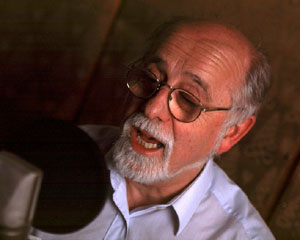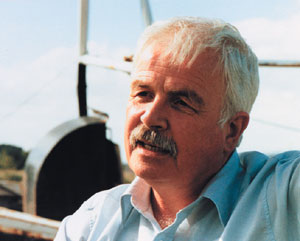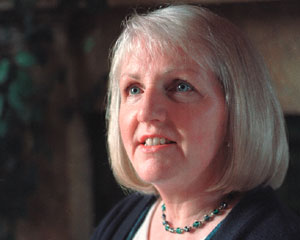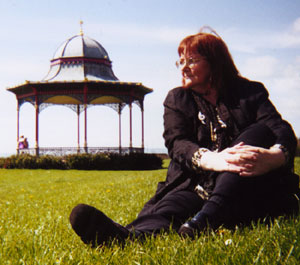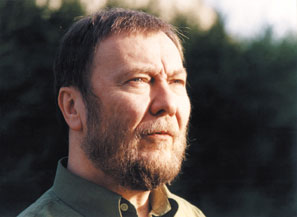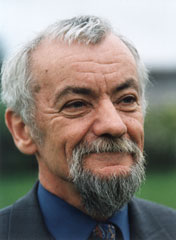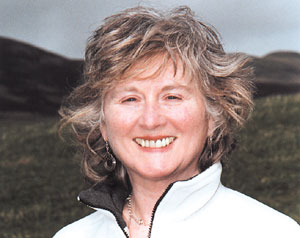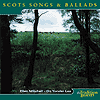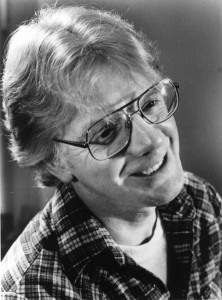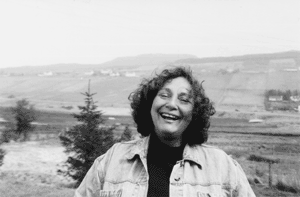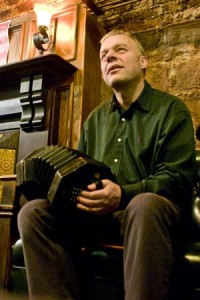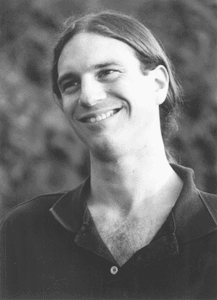The Tradition Bearers – the singers
Bob Blair, Jimmy Hutchison, Heather Heywood, Maureen Jelks, Tom Spiers, Jack Beck, Alison McMorland, Ellen Mitchell, Fiona Ross, Anne Neilson, Walt Michael, John Watt, Norman Kennedy, Geordie McIntyre, Geordie Murison, Sara Grey, Chris Foster, Terry Yarnell, Kieron Means, Steve Turner
It is now no longer possible to listen to some of the great traditional singers from Scotland’s past, people like Jeannie Robertson, Willie Scott or Lizzie Higgins, other than on recordings. Whilst these recordings convey something of their art they can never quite capture the spirit and presence that these great singers had in a live performance.
However by listening to current masters of their art in live performance, it is possible both to gain a deeper impression and understanding of some of the great singers of the past, together with the experience of listening to a present day masters of traditional music. Be prepared for the hairs on the back of your neck to stand on end – that frisson which tells you that you are experiencing something really special. In every case it is not just the singer but also the songs which are special and for these singers, the songs come first, the key perhaps to why they are held in such high regard.
Some Biogs:
Bob Blair
Bob Blair is a singer especially noted for his interpretation of Scottish lyrical songs and traditional ballads. He plays concertina and guitar, but generally prefers the beauty of unaccompanied singing.
Originally from Fife and now living in Glasgow, Bob is a member of Stramash, a group of singers who care intensely about Scotland’s traditional song heritage. His interest though, is not just an academic one, he is without doubt one of Scotland’s finest traditional singers – one of that rare breed who can do justice to the incredible range of ballads and songs passed down through the generations.
Bob’s repertoire is wide, often including relatively unknown versions of traditional songs. Whilst living in England in the 1960s and 70s, Bob was a member of Ewan MacColl’s “London Critics Group” and helped start The Grimsby Folksong Club. He has featured in a number of radio and television productions including The Song Carriers and Ewan MacColl’s award winning ‘Radio Ballads’.
Jimmy Hutchison
Jimmy was born in Frobost, on the island of South Uist, where he lived until he was ten years old when his parents moved to ‘The Fair Toun o’ Perth’. It is probable that it was these early years, when Jimmy was bilingual in English and Gaelic, that influenced his later understated singing style. When he sings a song Jimmy is telling a story with no need to dramatise or over-emphasise. In this respect he has all the attributes of a traditional Gaelic singer, the only difference being that he sings in English, or to be more precise, in Scots.
Throughout his singing career, Jimmy has chosen to sing mainly unaccompanied, allowing greater credence to the lyrics of his songs, although, on rare occasions, he allows himself to be accompanied by people whose musicianship he trusts.
One of the amazing aspects of Jimmy’s singing career, which spans over thirty-five years, is that in spite of the lure of fame and popular acclaim he has continued in full-time occupation as a joiner and draughtsman. During periods when family life made demands on his time, Jimmy readily transferred his love of song to a back burner and devoted his attention to where he felt it belonged, i.e. to his family.
The divisions in definition between traditional singer and revivalist are sterile when applied to Jimmy Hutchison. All singers have to learn songs from sources other than on their mother’s knee and when presented with a good song Jimmy will learn it, adapt it, then reproduce it as though it has been transferred to him via his mother’s milk. In the singing of Jimmy Hutchison you may hear material previously sung by the giants of the Scottish tradition such as Jeanie Robertson and Jimmy McBeath, along with songs from lesser knowns such as the London Irishman, Mike Smythe and the Canadian, Stan Rogers. All their influences are there. Jimmy Huchison
Heather Heywood
Heather has sung from an early age and singing and music of various kinds was in the family. Born in Ayrshire, she has some Irish ancestors at grandparent level, her mother was a Bruce and her father’s family were travellers, Gunns from Sutherland.
Heather is best known for her interpretation of traditional songs, her repertoire is wide and the bulk of her material comes from the Scottish tradition. It is the particular quality of her interpretation of ballads that has made many people hold her in such high regard.
Heather has been modest about her own talents. Bringing up the family has restricted Heather’s ability to travel as a singer, but the reality is that she has not wanted to do that on a full time basis.
Maureen Jelks
Maureen was born in Dundee, at 1 Little John Street, and moved to the Overgate when she was three years old. Her singing was inherited from her mother, who was a very good singer and would sing any song that took her fancy from Scottish, Irish, Frank Sinatra and Carmen Miranda!! Maureen would join in, even harmonising with her Mother from a very young age. There was always company in the house most weekends, and there would be a singsong where everyone would take a turn at singing songs, which would include anything from Burns, popular ballads and Dundee songs.
Maureen moved to London at the age of fifteen and gradually moved through the music scene, from rock and roll, traditional jazz, blues and into folk clubs in the sixties. Having moved back to Scotland in 1970, it was a few years before she was to discover the Scottish traditional music scene; this was due to a friendship with fellow Dundonian Christine Stewart who took her to her first Scottish folk festival, which was in Kinross. For Maureen it was a revelation and a rediscovery of her roots. She went on to compete in TMSA song competitions, winning many, which not only gave her confidence but helped to rid her of the shyness which had held her back for so many years. She was forty years old when she entered and won her first competition.
Maureen was very much influenced by the late Belle Stewart and Mary Brooksbank and felt a close affinity with their singing and their songs. Gordeanna McCulloch was another influence and was one of the first singers Maureen heard at her first Kinross Festival. With her obvious love of the songs, and her great sense of fun, Maureen has proved to be a great favourite at many festivals in Ireland and Britain as a solo artist, and as part of the group Palaver, which includes Ailleen Carr and Chris Miles. They have been joined recently by Pete Shepheard, Tom Spiers and Arthur Watson, all great solo singers and instrumentalists in their own right, to form the group Flash Company!
Tom Spiers
Tom was born in Aberdeen, the town where his mother was also born, in 1947. His father was from the village of Maybole in Ayrshire.
His mother’s side of the family had a great love for singing and they sang anything and everything – from traditional Scots songs to Frank Sinatra’s popular ballads. His father’s side of the family was distinctly less musical, to the extent that an annual ritual around Hogmanay was to hide his “moothie” in the hope that the family would not have to listen to him – his father usually managed to find it though!
Tom started attending Aberdeen Folk Song Club in 1962, not long after it had started, and played fiddle in a group doing a mixture of folk styles from Bluegrass to Scottish Traditional. After that, he started singing along in the chorus: initially without the fiddle, and latterly with the fiddle, without really thinking about it.
He was encouraged to learn traditional material initially by Arthur Argo, and then by Peter Hall, who invited him to join a new group he was forming; this group later became The Gaugers.
Jack Beck
Life is a series of well-mets and fare-thee-wells, and its pivotal moments are seldom heralded by blaring trumpet overtures. Certainly this is true for Jack Beck, one of that class of musician who works diligently doing what comes naturally, and never tries to be other than what he is. With 9 recordings and an honorary lifetime membership in the TMSA to his credit, these unassuming ways have led to excellence. In addition to a lengthy solo career, Jack’s easy-going personality and musical skill have earned him work with exceptional musicians from Scotland and beyond.
In the late 1950s, Jack bought a second-hand guitar “because everybody else was”. As the Skiffle craze swept Britain with its jazzy blues feel, Jack put steel strings on his classical guitar, learned the required three chords, and set himself in motion. “I had a lot to learn,” he says of this period.
His opportunity was coming. When Dunfermline’s folksong club ‘The Howff’ began in 1961, and traditional singers like Jeannie Robertson, Jimmy McBeath and Willie Scott appeared alongside young skiffle-ites, Jack was there, soaking it all in. As things progressed, this was to prove a great boon not only to himself, but to many of Scotland’s folk musicians.
Alison McMorland
In 1976 when Alison McMorland released her first solo album “Belt wi’ Colours Three” as part of Tangent’s series of recorded Scottish traditional music, she was already a household name within the folk revival. Hamish Henderson hailed her as “one of the principal modern interpreters of an ancestral ballad singing tradition who unites scrupulous traditional fidelity with versatile and creative artistry.” And Dick Gaughan in reviewing the album said, “She sings with as much authority and experience as singers decades her senior … she is, in her field, one of the greatest singers to emerge and her importance cannot be too greatly stressed.” High praise indeed for such a young singer!
On the traditional performance side, Alison would say herself that the start of her public singing productivity began in earnest when she won the women’s traditional singing trophy at Kinross Folk Festival in 1971. Judged by Sheila Stewart, who had been the previous year’s winner (and before her Lizzie Higgins and Belle Stewart). The award gave her immediate recognition. But even more important was the fact she was spotted by Hamish Henderson who at this point took her under his wing. Hamish encouraged her to explore in the deepest possible way the richness of Scots songs. He made available the School of Scottish Studies archives and introduced her to such luminaries as Lucy Stewart, Jane Turriff and Betsy Whyte. As Alison says, “He’s a giant of a man. I owe an immense amount to him.”
Ellen Mitchell
Ellen has recorded a CD for the Tradition Bearers. Over the last few years Ellen has been invited to sing at far more festivals in England than in Scotland – we seem to have a habit in Scotland of overlooking talent on our doorstep.
Fiona Ross
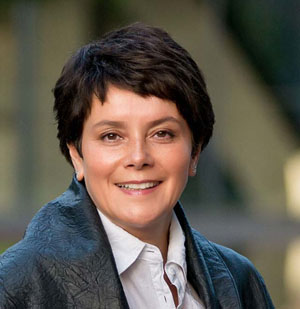
Fiona inherited a love of Scottish music from her dad and has sung popular Scottish songs from a young age. She grew up in Partick, in the west end of Glasgow, spending time throughout her teenage years at her step-family home on the Isle of Lewis in the Outer Hebrides.
Since moving to Melbourne in 2009, Fiona has continued to pursue, and share, her passion for the Scots song tradition. Fiona’s busy schedule of traditional Scots song concerts, workshops and presentations is coupled with the PhD she is currently completing at the University of Melbourne Conservatorium. Her research focus is on traditional singers of Scots song who emerged during the course of the folk music revival in Scotland. In Australia, Fiona has performed at major events including Port Fairy Folk Festival, National Folk Festival and the National Celtic Festival. She is Patron of the Robert Burns Club of Melbourne.
Anne Neilson
Anne sings with Stramash, alongside Bob Blair. She has been an influential figure among singers in Scotland, was one of the Scots Women’ in the recent Celtic Connections concert and teaches traditional song at the degree course at the RSAMD. She plans to record for the Tradition Bearers in the near future
Walt Michael
Walt Walt Michael is regarded as one of the leading players of the hammered dulcimer and a great singer. He has been a regular visitor to Scotland. His music has taken him from the coal camps of Appalachia to the Closing Ceremonies of the 13th Winter Olympic Games. As an ensemble, Walt Michael & Co. play a range of music that could be put into several categories – Folk, Celtic, Gospel, Bluegrass, Old Time – emphasizing at the same time the virtuosity of its individual members. As well as Walt, the group consists of Evan Stover on fiddle, mandolin and guitar, Frank Orsini on fiddle and viola, and Tom Wetmore on the double bass.
John Watt
John Watt is a native of Dunfermline, Fife, and now lives in Milnathort. He has been involved in the Scottish folksong movement for over thirty years. A past Chairman of The Traditional Music and Song Association of Scotland, he has presented numerous documentaries on radio, including ‘Fife Connection’, ‘Howe of Fife Connection’ and ‘The Fifty-Fifty Ball’. He has lectured for the Association of Scottish Literary Studies on Fife Poets and Song-writers, tutored for The Workers Educational Association in Creative Writing and Musical Appreciation and is Chairman of the Milnathort based Love and Liberty Theatre Company.
A singer, raconteur and composer, his work has been recorded by artists in Scotland, Ireland, Denmark and Canada. Prior to this year he had recorded only one album, ‘Shores of the Forth’ along with Davey Stewart, and although many others had recorded his songs, even on this album he steered clear of his own songs leaving them to Davey. The fact that there had not been many recordings of John singing his own songs was appreciated by Rab Noakes who was determined to put matters right. No shortcuts were taken; he assembled a group of talented musicians who were totally sympathetic to John’s songs, giving them the time to do the job.
Norman Kennedy
It is a sad fact that if you mention the name of Norman Kennedy to the present generation of Scottish folk enthusiasts, most of them will reply “Norman who?” Yet in his adopted homeland of America, where he has lived since 1966, he is rightly regarded as one of the finest exponents of the traditional arts of ballad-singing and storytelling.
In the late 1950s / early 1960s, Norman was one of the shining lights of the British folk revival. To say he was a regular visitor at the homes of such great singers as Jeannie Robertson does him a disservice. He was a friend of Jeannie, welcomed with open arms as someone she could pass her songs to in the knowledge that they would be treated with the respect, understanding and skill they deserved. Consequently, his repertoire of Scottish songs and ballads was immense, at a time when most of us depended on ‘101 Scottish Songs’ as our source of material.
But his interest didn’t stop there. His love of singing, folk lore and traditional skills, frequently took him away from his native Aberdeen, to visit family in the rural area of Methlic, where he helped on the farm, and to the Hebrides where he absorbed as much as he could of the Gaelic culture. Apart from learning the language, he taught himself to card, spin and weave the wool, which he picked off barbed wire fences. He even waulked the tweed in the traditional fashion (which made visiting him quite awkward at times, stepping over buckets of urine).
One result of this eccentric behaviour was that he usually turned up at the Aberdeen Folk Song Club immaculately dressed in a tweed suit, while the rest of us wore the universally accepted uniform of jeans and sweater. In the heady days of the Folk Revival, very firm distinctions were drawn between ‘Traditional’ and ‘Revival’ singers. Norman refused to fit into either box. He wasn’t born on a farm, or in a travellers tent, but he learned his songs orally from those who had been. He was one of the few ‘toonsers’ to be afforded the reverence normally reserved for Traditional Singers and fits more perfectly than anyone else I can think of, the accolade of Tradition Bearer.
So why has he been all but forgotten in Scotland? Simply because America swallowed him up. Mike Seager heard him sing at the Aberdeen Folk Club in 1964 and immediately invited him to represent Scotland at the 1965 Newport Folk Festival. He went across with Bert Lloyd and Margaret Barry who were representing England and Ireland, and loved it so much he decided to make it his home. For the last 35 years, all his energy has gone into spinning, weaving, singing and storytelling for a huge audience of appreciative 2nd, 3rd and 4th generation Scots who wanted to keep in touch with their roots.
In Norman Kennedy we could not have had a better ambassador.
Geordie McIntyre
Geordie has a lifetime of experience of traditional song and his knowledge and love of the tradition comes through in all his music. On his album with his wife Alison McMorland they have blended older songs with recently written songs including several from the pen of Geordie himself. The fact that the CD comes across as a seamless whole, rather than merely a collection of great songs, is a testament to the writers and the singers and their place in a long unbroken tradition.
Sara Grey
Sara Grey is an American singer, banjo player and song collector, who is immersed in the song traditions of both sides of the Atlantic. She lived in Scotland for 28 years, She also travelled extensively through the U.S. and Canada, performing and participating in workshops and summer-schools. She became very aware of how easy it is for people to become insular in their appreciation of music and how important it is for people to see that as songs travelled they became part of U.S. culture too. Her passionate interest is to maintain and strengthen the links between Celtic and American culture.
Chris Foster
Singer and guitarist
‘His is one of the most distinctive voices in English folk music, totally sure and engaging, with some of the most accomplished and sensitive guitar accompaniments that you are likely to hear. A mesmeric performer.’ Vic Smith – The Folk Diary
Chris Foster is a master of his trade. Alongside Nic Jones, Dick Gaughan and June Tabor, he established himself in the 1970’s as one finest interpreters of the traditional ballads of the British Isles. Chris has a distinctive voice, deep and clear with a faint overlay of his native Somerset, and a vocal style that incorporates a subtle use of decoration with an intricate and exciting sense of rhythmic patterns. Underpinning it all is his on-stage persona, with his urbane wit and engaging enthusiasm for his music that draws the audience into his performance.
Chris grew up in Somerset, where he first heard and started singing traditional songs. Following a visual arts training he became a full-time musician, clocking up 8 years of continuous touring throughout Britain, Europe and North America. Along the way, he picked up musical influences and songs from traditional musicians in the coastal villages of East Anglia, intriguing and unusual songs from the manuscripts of the Victorian / Edwardian folk song collectors of his native West of England and awards and critical acclamation for his recorded work in 1977 and 1979.
Then in the 1980’s he changed focus, dropping out of the folk scene and settling in Salisbury where he co-founded Mobile Arts, a mixed media community arts company. Using music, drama, visual arts, oral history and print, Mobile Arts established a reputation for exciting, original work, much of which researched, revived and re-interpreted the musical traditions and customs of the area.
In the 1990’s Chris moved to the midlands and cast it all back into the melting pot, re-emerging onto the folk scene with innovative visual and musical contemporary interpretations of English songs and traditions in two shows ‘Sting in the Tale’ and ‘Traveller’s Tales’. He has also been increasingly in demand as an accompanist on other peoples’ recordings. His solo CD ‘Traces’, tells compelling stories which in his own words, “reveal traces of other lives, struggles and times which I can only imperfectly imagine, but which still resonate powerfully today.”
Terry Yarnell
Singer and fiddle player
Talk to Terry about early times in his life and you discover that he has always sung, even as a small child. Although born and raised in the East End of London, his mother came from an Irish family. This in turn resulted in a Catholic school with most of his friends being Irish. He later married the sister of a friend, whose family came from Cork. This connection was to prove important. His musical education otherwise, was the somewhat common one of jazz, skiffle, American folksong, and back to English/Irish song.
This was followed be several years with the London Critics Group, working with Ewan MacColl and Peggy Seeger. During this time, many recordings were made, along with radio broadcasts and much concert and club work. Holidays were spent in the west of Ireland, soaking up the Sean Nos singing of the Connemara area. Mixing this with many hundreds of hours listening to the finest of the English and Scots traditional singers resulted in a range of influences on his own singing.
Terry can frequently be found around the London Irish pubs playing fiddle in the sessions, but always comes back to his first love of the songs and ballads, the singing of which has taken him to many European countries, along with other farther flung places such as Newfoundland and Cuba. He also has an interest in the Broadside ballads, particularly those connected with the history of London. He runs a singers workshop and has a large collection of books and recordings which is available for study.
Like many other singers in the solidly traditional arena, he does not particularly like studio recording, with its attitude of striving for technical perfection whilst frequently losing the meat of the song, but prefers a small circle of friends and `going for it! `. This results in every performance of a song being different and not too ‘fixed’, but as Terry would say, “That’s as it should be “. Terry works as a Chemical Scientist and still lives in London, with the following generations of the family never far away.
Steve Turner
Steve Turner is one of those artists who have been the backbone of the British folk scene but has been out of circulation as a professional musician for around eleven years. He was tempted back recently, in part by Mick Peat but, as he said in a recent article – “folk music seems to get into your blood!” – and four or five years ago he started doing a few gigs again and came gradually back on to the folk scene.
Kieron Means
Kieron is …

